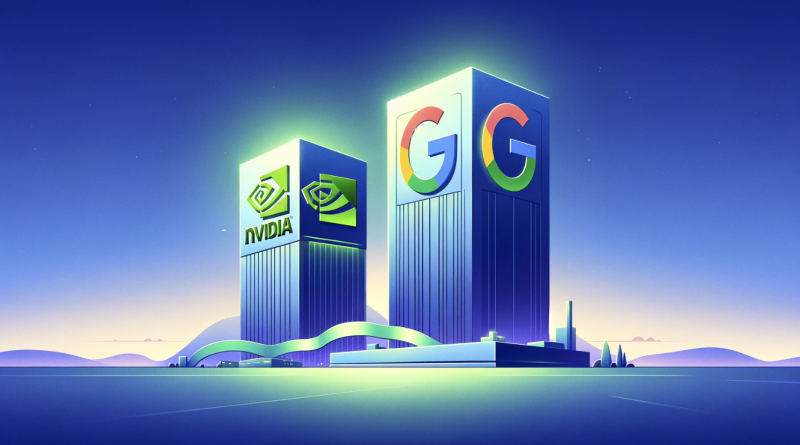Nvidia surpasses Google in market capitalization, becoming the fourth most valuable company globally.
Originally recognized as a manufacturer of gaming GPUs, Nvidia has seen its valuation surge dramatically, driven by the growing demand for AI and the pivotal role of GPUs in enhancing AI computations. This ascent was further propelled by the development of specialized chips, notably the H100 Tensor Core GPU—with a price tag ranging between $25,000 and $40,000—and the A100. As a result, Nvidia’s shares have risen by 50% this year. Presently, Nvidia’s market capitalization has reached $1.8 trillion, surpassing that of Amazon ($1.76 trillion) and Alphabet ($1.77 trillion), positioning it as the fourth most valuable company globally.
The question now is the potential for Nvidia’s stock rally to continue its upward trajectory. The company’s market cap is trailing behind that of Saudi Aramco ($2.0 trillion), Apple ($2.8 trillion), and Microsoft ($3 trillion), which is also capitalizing on the AI boom.
Nvidia is poised to release its next earnings report on February 21, with the previous report for Q3 2023 highlighting the company’s success in maximizing its AI chip production. Revenue saw a 206% increase year-over-year, with $14.51 billion of the $18.12 billion total revenue attributed to its AI/data center segment. The forthcoming Q4 report is anticipated to set new records, and Nvidia plans to unveil its next-generation AI chip, the HGX H200 Tensor Core GPU, in Q2 2024. Nvidia currently dominates the AI server market, holding a 60–70% share, according to TrendForce.
However, Nvidia faces challenges, notably from AI firms exploring the development of their proprietary chips. OpenAI’s CEO, Sam Altman, advocates for a significant expansion in AI chip infrastructure investment, which would eclipse the current chip industry valued at approximately $500 billion. Altman’s vision for scaling AI chip production diverges from that of Nvidia’s CEO, Jensen Huang. Altman emphasizes the need for more AI infrastructure to maintain economic competitiveness, while Huang, as reported by the Wall Street Journal, questions the necessity for increased production, suggesting that advancements in computing efficiency could mitigate the demand for additional resources.
With the ongoing AI chip shortage, many major AI entities, including Microsoft, Amazon, IBM, AMD, and Google, are developing their chip programs. The critical inquiry remains whether any of these contenders will manage to rival Nvidia’s dominance in the sector.

